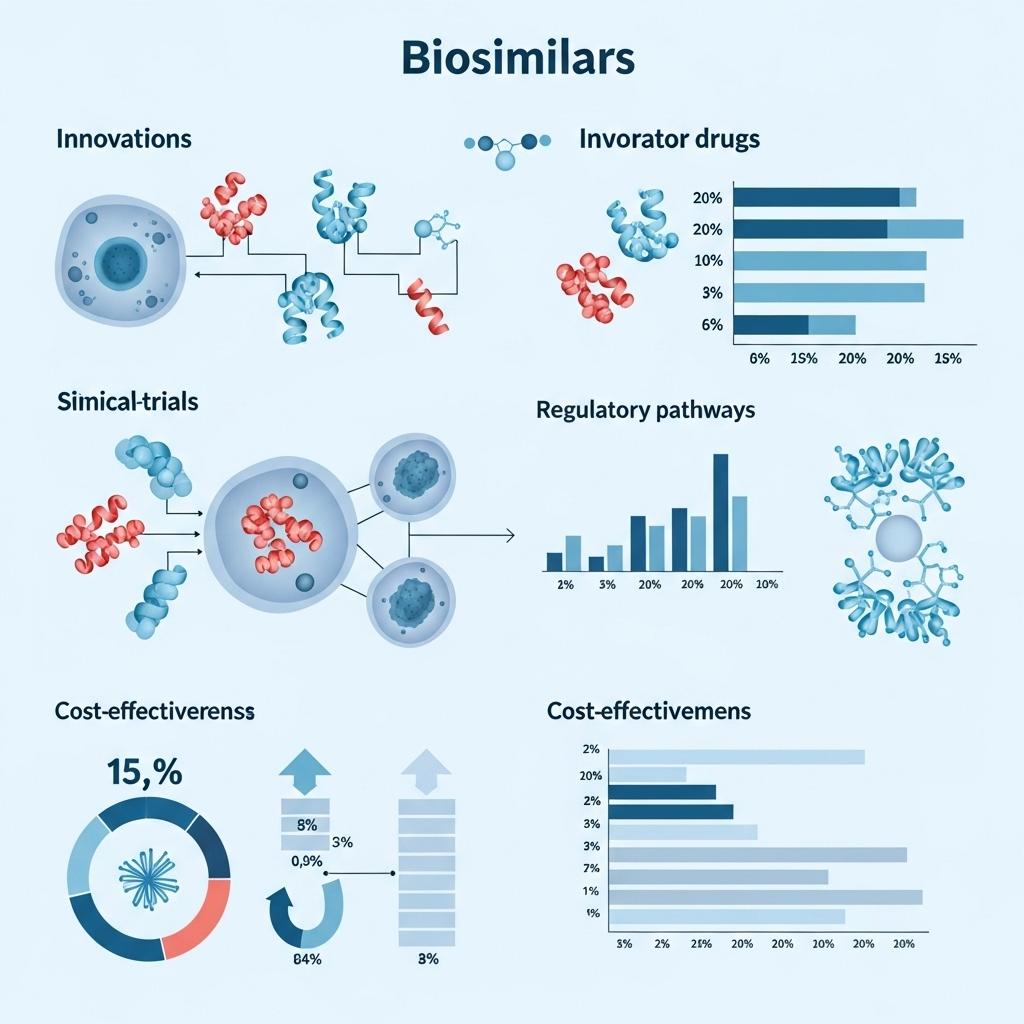Biosimilar Uptake in the US: Barriers, Breakthroughs, and Biologic Wars

Biosimilars, biologic products that are highly similar to already approved reference biologics, are reshaping the pharmaceutical landscape by offering cost-effective alternatives to high-priced biologics. While both the United States and the European Union recognize the value of biosimilars, their regulatory pathways, adoption rates, market penetration, and commercial challenges reveal distinct trajectories.
Request a sample copy of the CI report at: https://www.datamintelligence.com/strategic-insights/ci/biosimilars-us-and-eu
Regulatory Frameworks: EMA vs FDA
The European Medicines Agency (EMA) and the U.S. Food and *** Administration (FDA) have both established rigorous regulatory pathways for biosimilars, but their approaches differ:
EMA: A pioneer, the EMA established its biosimilar framework in 2005. It emphasizes comparability studies, with a product-by-product approach, allowing for class-specific guidance (e.g., for monoclonal antibodies, erythropoietins).
FDA: The FDA followed with the Biologics Price Competition and Innovation Act (BPCIA) in 2010. The U.S. approach requires extensive ***ytical, preclinical, and clinical studies, and distinct ***gnations: “biosimilar” and “interchangeable.”
This divergence influences approval timelines and post-marketing requirements.
Market Adoption and Uptake: EU Leads the Way
The EU has outpaced the U.S. in biosimilar acceptance due to earlier regulatory clarity, supportive pricing policies, and physician familiarity:
EU Adoption Highlights:
Over 90 biosimilars approved across oncology, immunology, and endocrinology.
Uptake exceeds 50–80% in many therapeutic classes.
Countries like Germany, Norway, and the UK have biosimilar market shares above 70%.
U.S. Challenges:
Despite 45+ FDA approvals, fewer biosimilars are on the market due to patent litigation and delayed commercialization.
Adoption remains modest, with less than 30% market share in many therapeutic areas.
Interchangeability and substitution laws vary by state, creating a patchwork market.
Pricing, Access, and Cost Savings
Biosimilars are expected to lower healthcare costs and expand patient access. In practice, outcomes vary:
EU Experience:
Significant cost savings: Estimates show over €10 billion in savings across major markets.
Competitive pricing models and national tenders drive down prices by 20–50%.
Savings redirected to newer therapies or expanded treatment access.
US Market:
Biosimilars offer price discounts of 15–30%, with some newer entrants offering up to 60%.
Pharmacy Benefit Managers (PBMs), rebates, and formulary negotiations complicate savings realization.
Payer education and physician incentives are crucial for meaningful uptake.
Interchangeability and Physician Confidence
A major hurdle in the U.S. has been physician confidence in biosimilars, especially regarding substitution:
EU: Automatic substitution is discouraged, but trust in the EMA's review process and real-world data fostered acceptance.
US: Only a few biosimilars hold the "interchangeable" ***gnation, allowing pharmacy-level substitution in select states. Educational campaigns are slowly improving prescriber trust.
Innovations and Next-Generation Biosimilars
Beyond first-generation biosimilars, next-generation and biobetters (enhanced biologics with improved profiles) are entering the scene. Manufacturers are exploring subcutaneous formulations, auto-injectors, and sustained-release ***gns to differentiate and add value beyond cost savings.
Key emerging areas include:
* Oncology (trastuzumab, bevacizumab)
* Autoimmune diseases (adalimumab, infliximab)
* Diabetes (insulin glargine)
* Ophthalmology (ranibizumab biosimilars in both US and EU pipelines)
Request a CI consultation at: https://www.datamintelligence.com/strategic-insights/ci/biosimilars-us-and-eu
Biosimilars Outlook: Alignment or Divergence?
Both the US and EU markets are poised for growth, but systemic differences remain:
EU: Continues to lead in volume and physician alignment.
US: Offers larger commercial potential but needs harmonized substitution policies, litigation reform, and broader payer alignment.
Global convergence in biosimilar standards could accelerate access, reduce duplication, and foster cross-border innovation.
About DataM Intelligence
DataM Intelligence 4Market Research LLP delivers real-time competitive intelligence across autoimmune, immunologic, oncology, and biosimilar markets. We provide insights on regulatory developments, clinical trial landscapes, market access, and commercialization strategies for global healthcare stakeholders.
🔗 Visit: www.datamintelligence.com
- Art
- Causes
- Crafts
- Dance
- Drinks
- Film
- Fitness
- Food
- Spiele
- Gardening
- Health
- Startseite
- Literature
- Music
- Networking
- Andere
- Party
- Religion
- Shopping
- Sports
- Theater
- Wellness


